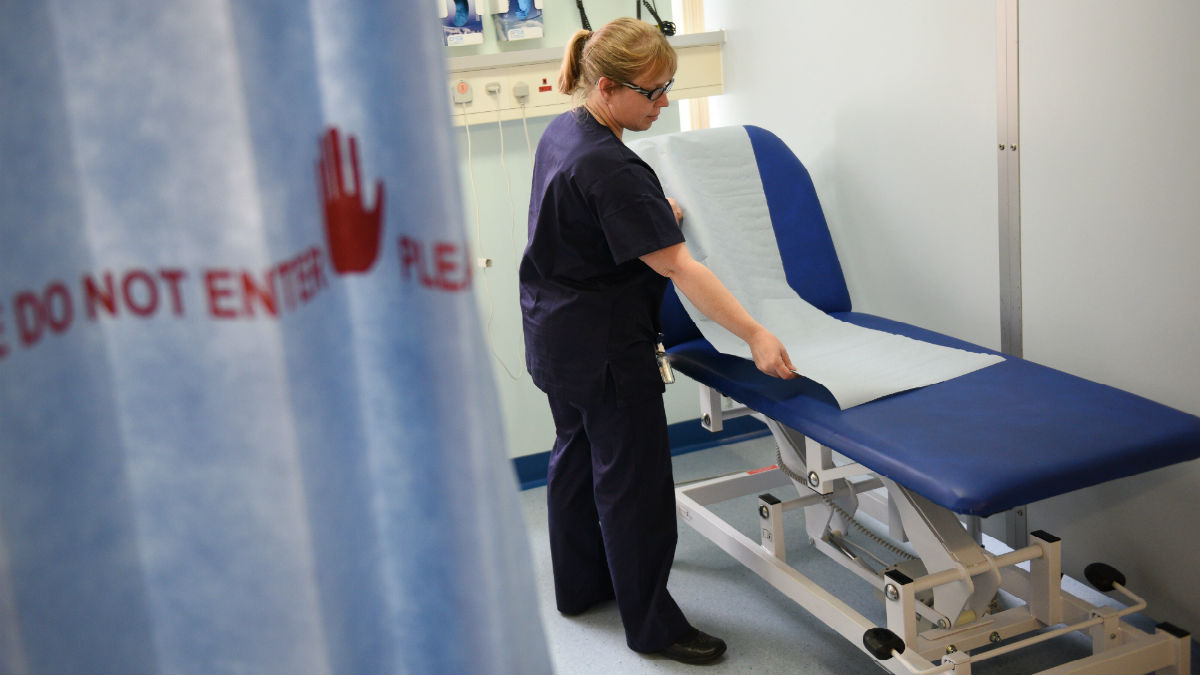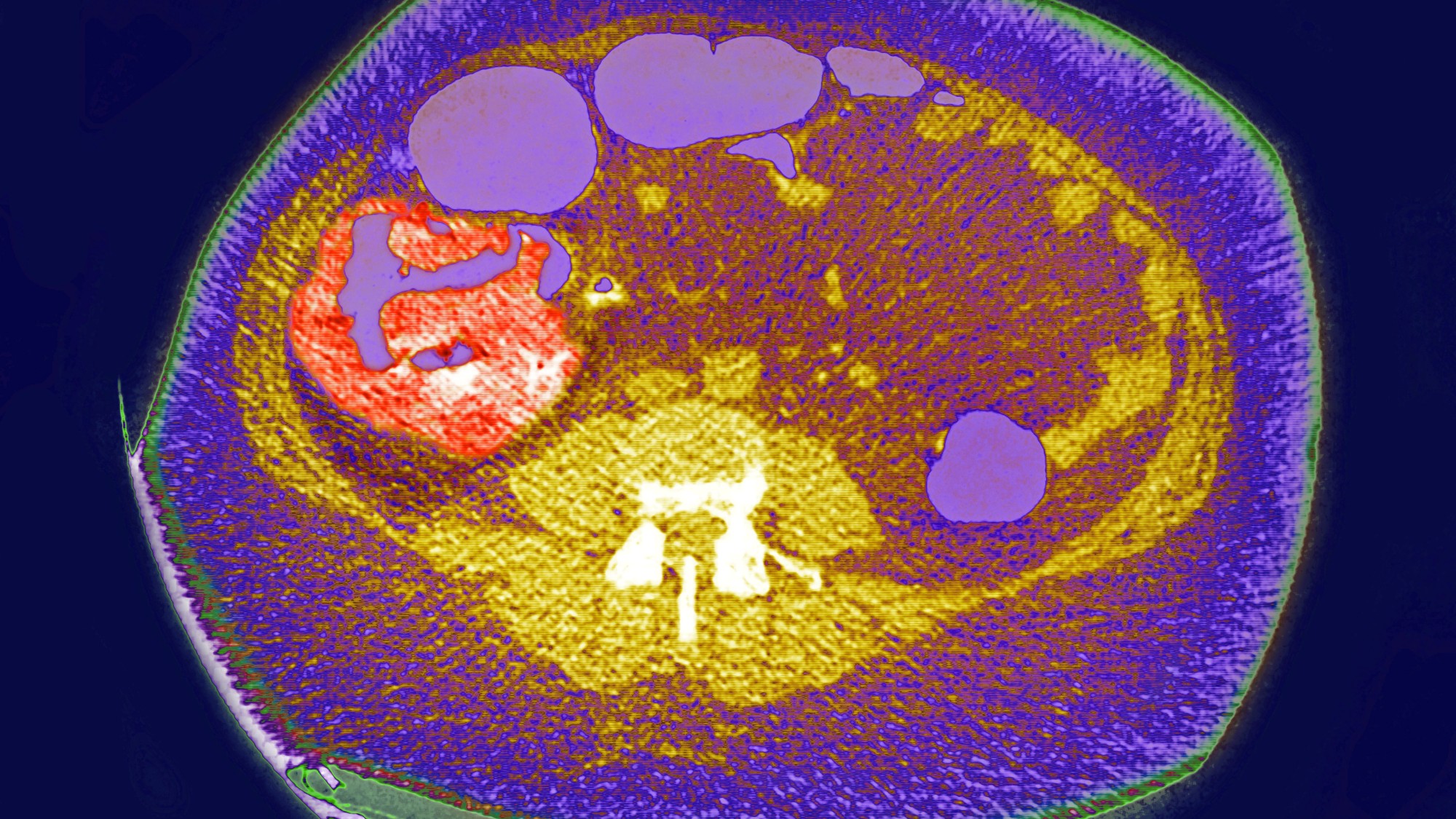Ovarian cancer: what is it and what are the symptoms?
Ovarian cancer is the sixth most common cancer for women in the UK

A free daily email with the biggest news stories of the day – and the best features from TheWeek.com
You are now subscribed
Your newsletter sign-up was successful
Ovarian cancer is the sixth most common cancer affecting women in the UK, with more than 7,000 women diagnosed with the disease every year, according to Cancer Research UK.
This disease typically affects women over the age of 50 who have gone through menopause, but it can strike younger women.
Here’s what you need to know about ovarian cancer and how to spot the symptoms:
The Week
Escape your echo chamber. Get the facts behind the news, plus analysis from multiple perspectives.

Sign up for The Week's Free Newsletters
From our morning news briefing to a weekly Good News Newsletter, get the best of The Week delivered directly to your inbox.
From our morning news briefing to a weekly Good News Newsletter, get the best of The Week delivered directly to your inbox.
What are the causes of ovarian cancer?
Ovarian cancer happens when abnormal cells in the ovary start to uncontrollably grow and do not die, creating a tumor. If the tumor is malignant then it is cancerous and may grow, spreading to other parts of the body.
There are three types of ovarian cancer: epithelial, germ cell and sex-cord stromal. About 90% of ovarian cancer tumours are epithelial, meaning they originate in the thin tissue surrounding the ovary.
Like many cancers, ovarian cancer has a genetic component, and has been linked to women whose family have a history of ovarian or breast cancer. Other potential risk factors include having endometriosis or being overweight.
A free daily email with the biggest news stories of the day – and the best features from TheWeek.com
What are the symptoms?
Ovarian cancer has four main symptoms: persistent stomach pain, persistent bloating, feeling full more quickly and needing to pee more often than normal.
These can frequently be the symptoms of other, less serious, conditions, such as irritable bowel syndrome or ovarian cysts, but if your symptoms are persistent, severe or frequent schedule an appointment with your GP. It's unlikely you have cancer, but it's best to be safe.
How is it treated?
Ovarian cancer treatment typically depends on how far the cancer has spread, as well as your general health.
One form of treatment is surgically removing the cancer which will often include removing both ovaries, the womb and the fallopian tubes. The other form of treatment is chemotherapy, which is usually used after surgery to kill any remaining cancer cells.
On average, 50% of women diagnosed with ovarian cancer will live for at least five years and about one in three will live at least 10 years, according to the NHS.
-
 The Gallivant: style and charm steps from Camber Sands
The Gallivant: style and charm steps from Camber SandsThe Week Recommends Nestled behind the dunes, this luxury hotel is a great place to hunker down and get cosy
-
 The President’s Cake: ‘sweet tragedy’ about a little girl on a baking mission in Iraq
The President’s Cake: ‘sweet tragedy’ about a little girl on a baking mission in IraqThe Week Recommends Charming debut from Hasan Hadi is filled with ‘vivid characters’
-
 Kia EV4: a ‘terrifically comfy’ electric car
Kia EV4: a ‘terrifically comfy’ electric carThe Week Recommends The family-friendly vehicle has ‘plush seats’ and generous space
-
 The truth about vitamin supplements
The truth about vitamin supplementsThe Explainer UK industry worth £559 million but scientific evidence of health benefits is ‘complicated’
-
 Covid-19 mRNA vaccines could help fight cancer
Covid-19 mRNA vaccines could help fight cancerUnder the radar They boost the immune system
-
 Deadly fungus tied to a pharaoh's tomb may help fight cancer
Deadly fungus tied to a pharaoh's tomb may help fight cancerUnder the radar A once fearsome curse could be a blessing
-
 'Poo pills' and the war on superbugs
'Poo pills' and the war on superbugsThe Explainer Antimicrobial resistance is causing millions of deaths. Could a faeces-filled pill change all that?
-
 The Y chromosome degrades over time. And men's health is paying for it
The Y chromosome degrades over time. And men's health is paying for itUnder the radar The chromosome loss is linked to cancer and Alzheimer's
-
 A bacterial toxin could be contributing to the colorectal cancer rise in young people
A bacterial toxin could be contributing to the colorectal cancer rise in young peopleUnder the radar Most exposure occurs in childhood
-
 Why are more young people getting bowel cancer?
Why are more young people getting bowel cancer?The Explainer Alarming rise in bowel-cancer diagnoses in under-50s is puzzling scientists
-
 Five medical breakthroughs of 2024
Five medical breakthroughs of 2024The Explainer The year's new discoveries for health conditions that affect millions